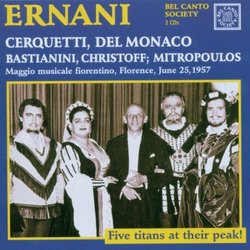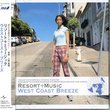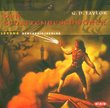Live performance triumphs over 1957 sound
Arthur Leonard | New York, NY USA | 08/12/2001
(4 out of 5 stars)
"Here's a dream Italian cast of the 1950s from the Florence May Festival led by Dimitri Mitropoulos, then music director of the NY Philharmonic and frequent guest in this repertory at the Met and various European festivals. Of course the performance is cut, but rather lightly, considering the date. The performers are really turned on in this live performance, although the imperfections and audience noises of such occasions, together with the vagaries of a live pickup, result in less than stellar sound and balances. Especially recommended for Del Monaco in the title role!"
Very great singing, but for me, not quite the composer's int
madamemusico | Cincinnati, Ohio USA | 05/15/2007
(3 out of 5 stars)
"I owned this recording for years and believed it when others said it was an "unsurpassable" Ernani, especially so when I compared it to the inferior RCA recording (even though Leontyne Price's singing is incomparably great). But I gave up on it because, to my ears at least, it just didn't "jell" in musical or dramatic continuity.
Now, I am a huge fan of Anita Cerquetti. I like Del Monaco and Bastianini very, very much. Christoff had a great voice. And Mitropoulos was a fine conductor. But the whole thing, to my ears, is overloud and uncomfortably paced. The rubato that Mitropoulos introduces may, to some ears, link it to later Verdi words, but to mine it just makes the musis sluggish.
Del Monaco is almost universally lauded for this role. The Editor's Comment says that the role of Ernani is baritonal. I could not disagree more. If you are a "baritonal" tenor, how on earth can you properly sing "Come rugiada al cespite" with its top D-flat?? And the duets and trios lie very high for the voice as well. I didn't begin to enjoy "Ernani" until I heard the tenor-baritone duet sung by Marcel Wittrisch and Gerhard Husch, in a straightahead reading replete with sterling high notes. (Not that I revel in high notes, just that in this music they are not only called for but crucial to the music's success, just as they are in "Il Trovatore.")
The out-of-print live recording with Mirella Freni, Placido Domingo, Renato Bruson etc. conducted by Riccardo Muti has one major flaw: Freni cannot for the life of her sing the trills, and so her cabaletta to "Ernani, involami" sounds a bit clumsy. (Cerquetti does fine, by the way.) But except for that embarrassing moment, this performance has a flow, and sweep, that quite simply transports the listener back to that era when "bel canto" was beginning to be infused with drama. "Ernani" is a watershed work for Verdi, perhaps not as structurally interesting or important as "Nabucco" or "Macbeth" but equally valid and far better than such ephemera (however well-written) as "Il Corsaro," "I Masnadieri," etc. from his "galley years." A fun work, not terribly deep but a good model for his later "Il Trovatore" and "Un Ballo in Maschera.""


 Track Listings (25) - Disc #1
Track Listings (25) - Disc #1
